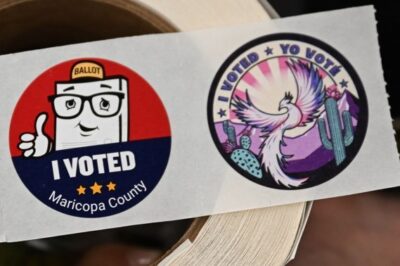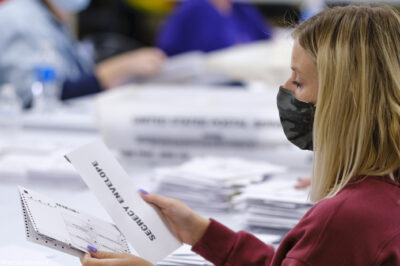Civil Rights Leaders Lobby Congress to Prioritize the Passage of National Voting Standards in 2025
WASHINGTON – Civil rights leaders and issue-based advocacy organizations gathered on Capitol Hill today to urge members of Congress to prioritize the passage of key pro-democracy bills, including the John Lewis Voting Rights Advancement Act, the Freedom to Vote Act, the Native American Voting Rights Act, and Washington, D.C. Admission Act, in the next legislative session. Earlier in the day, speakers from impacted communities shared how restrictive voting laws, in states across the country, have made it harder for them to exercise their right to vote and intentionally diluted their voting power, particularly among communities of color. As we head into another historic election season these speakers, alongside key congressional leaders, underscored the importance of protecting our freedom to vote to ensure every American has an equal opportunity to make their voices heard at the ballot box.
“The coalition of organizations represented here is a testament to the breadth of support for federal voting rights and democracy reform,” said Christine Wood, Declaration for American Democracy Coalition. “We’re comprised of civil rights leaders, unions, and organizations that work on a variety of issues - from gun violence prevention to reproductive justice, to combatting climate change - all of whom understand that to make progress on issues our communities care about, we must have a functioning democracy. Together we represent millions of Americans who are tired of seeing their voices stripped away through anti-voter laws and extreme gerrymandering. It is in their name that we urge Congress to prioritize passing this legislative package on day one of the next Congress.”
“Delta Sigma Theta was founded on the principles of social justice and advocacy,” said Elsie Cooke-Holmes, international president of Delta Sigma Theta Sorority, Inc. “...For over a century, we have dismantled barriers to voting and have stood unwavering against all forms of discrimination that seek to silence marginalized communities … Never forget — we are a force for justice. We are a beacon of hope. And together, we will effect real, lasting change.”
“Our democracy is at a critical juncture, and this moment is our last chance to protect what we hold dear: a system where every voice counts and every vote matters,” said Khadidah Stone, Alabama voter and plaintiff in Allen v. Milligan. “...Truly most of all it’s about every single American having a voice at the place it matters the most: the ballot box.”
“The Gullah Geechee Cultural Heritage Corridor, which Congress itself recognized, was meant to protect our culture,” said Taiwan Scott, South Carolina voter and plaintiff in Alexander v. South Carolina State Conference of the NAACP. “But instead of support, we find ourselves marginalized—our voices diluted, our representation weakened … The John Lewis Voting Rights Advancement Act, the Freedom to Vote Act, Native American Voting Rights Act, DC Statehood—all of these bills are about protecting the voices of communities like mine. Our voting rights are not negotiable. We matter. Our history matters. And we have come too far to be silenced again.”
Throughout the day, advocates from a broad array of issue organizations met with members of Congress to lobby their support for advancing these pro-democracy bills in the new year. Advocates emphasized the crucial importance of passing federal voting legislation to restore and strengthen the full force of the Voting Rights Act and expand access to the ballot so that all of our communities can participate fully in our democratic process. By passing these laws, Congress can reaffirm its commitment to protecting voting rights and play a key role in protecting this cornerstone of our democracy.
Since the devastating Shelby County v. Holder decision in 2013, which weakened key provisions of the Voting Rights Act, a wave of voter suppression tactics has swept our democracy.At least 30 states have passed more than 100 restrictive voting laws in the past decade. These laws, ranging from stringent voter ID requirements to gerrymandering that dilutes the political power of communities of color, have eroded the ability of millions of Americans to participate fully in our democracy.
Congress must act swiftly and decisively to pass national voting standards at the very first opportunity. The future of our democracy depends on it. Together, we can preserve and expand upon the promise of the Voting Rights Act of 1965, creating a more just and equitable society for generations to come.



